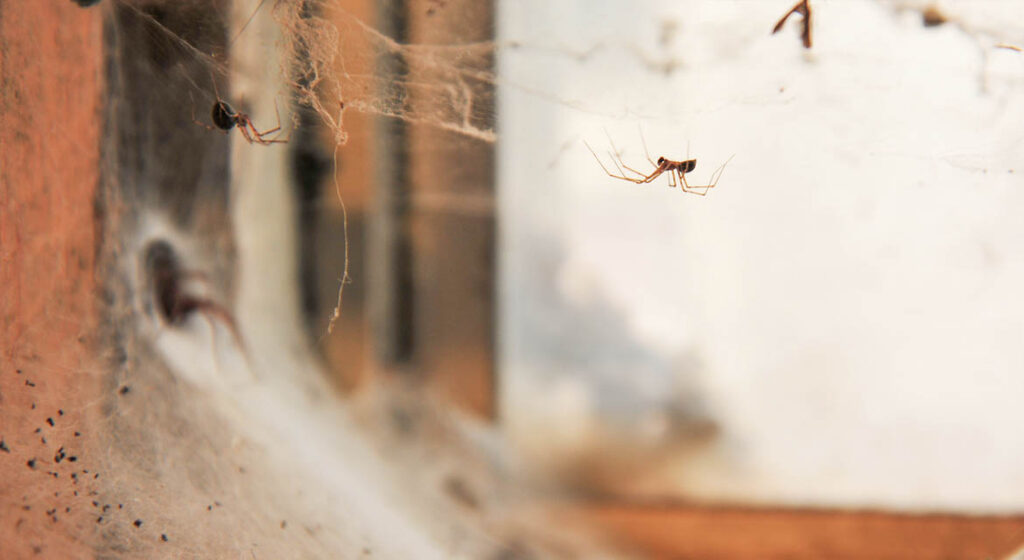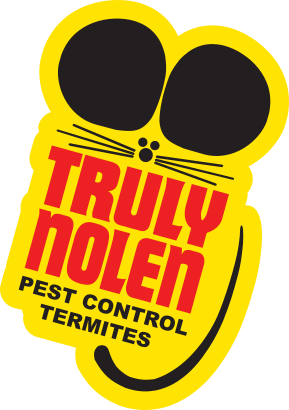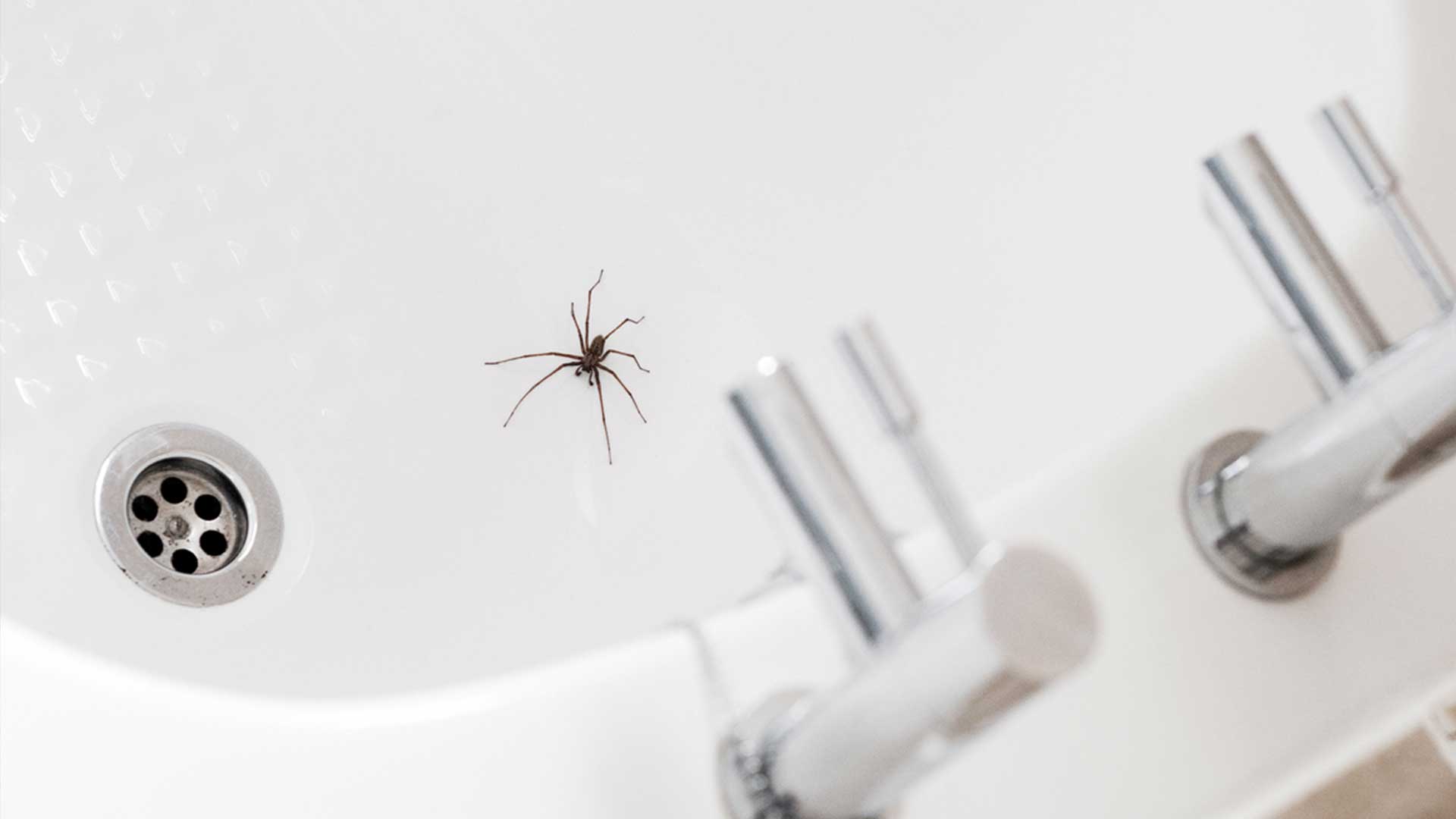
How Can I Prevent Spider Infestations In My Home?
Preventing spider infestations involves regular cleaning and vacuuming to eliminate webs, sealing entry points to keep spiders out, and minimizing food sources by storing food properly and controlling other pests, such as insects. These measures help create an environment that is less attractive to spiders and reduces the chances of infestation:
- Regularly clean and vacuum your home, focusing on corners and secluded areas where spiders may build webs, to keep your home clean and clutter-free.
- Seal cracks, gaps, and openings in doors, windows, and walls to prevent spiders from entering your home.
- Minimize food sources for spiders by storing food in airtight containers, fixing plumbing leaks to reduce moisture attracting insects, and using screens on windows and doors to prevent bugs from entering.
Signs of a Spider Infestation
Spiders are a common household pest that can become problematic if left unchecked. While not all spiders are dangerous to humans, a spider infestation can still be unsightly and unnerving. It’s important to know the signs of a spider infestation so that you can take the necessary steps to prevent it from getting out of control.
One of the most obvious signs of a spider infestation is the presence of spider webs in and around your home. While spiders can spin their webs in almost any location, they tend to favor dark, quiet areas such as basements and attics. If you notice an increase in the number of spider webs in your home, you likely have a spider infestation.
Another sign to watch out for is an increase in the number of spiders you see in your home. While it’s normal to occasionally see a spider inside your home, a sudden increase in their numbers can be a sign of an infestation. If you’re noticing spiders regularly in places like your bedroom, kitchen, or bathroom, it’s time to take action.
Spider egg sacs are another sign of a spider infestation. These small, silk-like sacs contain hundreds of spiderlings that will eventually hatch and grow into adult spiders. If you come across these sacs in your home, it’s crucial to remove them immediately before the spider population in your home grows exponentially.
In addition to the physical signs of a spider infestation, you may also notice an increase in other household pests, such as flies, mosquitoes, and other small insects. Spiders feed on other pests, so an increase in their population may attract more insects to your home.
Finally, if you or anyone in your household is experiencing unexplained spider bites, it’s a strong indication that you have a spider infestation. While most spider bites are harmless, some species, such as black widows and brown recluses, can cause serious health problems.
If you notice any of these signs of a spider infestation in your home, it’s vital to take action to prevent the problem from getting worse. You can start by sealing up cracks and crevices in your home to prevent spiders from entering and using spider traps or insecticides as necessary. By being vigilant and taking steps to avoid a spider infestation, you can keep your home safe and comfortable for you and your family.

Truly Nolen GUARANTEE
If you’re not completely satisfied, you’ll get a full refund on your most recent service with our 100% money back guarantee.

$50 Off Year Round Pest Control
Truly Nolen is a family-owned company with 85 years of experience providing the best pest control. If you’re not completely satisfied, you’ll get a full refund on your most recent service with our 100% money back guarantee.
Webs and Egg Sacs
One of the most common indicators of a spider infestation is the presence of spider webs. These sticky, thread-like structures can be found in corners, crevices, and other secluded areas around your home.
Spiders use their webs to catch prey and lay eggs, so if you spot a web, a spider is likely nearby. Common house spiders and cellar spiders are known for their intricate cobweb-like structures, while brown recluse spiders and black widows tend to spin more irregular webs.
Beyond webs, spider egg sacs are another sign of infestation. These small sacs are typically white or beige and can contain hundreds of spiderlings. They can be found in a variety of locations, including under furniture, in cracks in walls, and even in clothing or bedding.
If you do come across an egg sac, it’s essential to remove it immediately to prevent the spider population from growing. You can do so by gently scraping it off with a piece of paper or vacuuming it up.
Prevention is key when it comes to spider infestations. Regularly cleaning your home and vacuuming up any webs or egg sacs can help keep spiders at bay. You can also make your home less attractive to spiders by sealing up any cracks or gaps in windows and doors, reducing clutter, and removing any potential food sources such as crumbs or leftover food.
If you’re dealing with a particularly stubborn spider infestation, you may need to consider more drastic measures, such as using residual insecticides, glue traps, or spider catchers to remove spiders on contact. It’s also important to seek medical attention if you suspect that you or anyone in your household has been bitten by a poisonous spider, such as a black widow or brown recluse.
Staying vigilant and taking steps to prevent spider infestations can help keep your home safe and spider-free.
Seeing More Than One Spider at Once
If you’re noticing multiple spiders in your home or outdoor space, you may be wondering what this means and whether it’s cause for concern. While it’s common to come across a single spider in your home or garden, seeing multiple spiders at once can indicate several different things.
First and foremost, it’s important to understand that not all spiders are harmful or dangerous. Many species of spiders are beneficial to humans, as they help control insect populations and keep your home or garden free of pests. However, it’s important to note that certain types of spiders can be poisonous or harmful if they bite you or your pets.
If you’re seeing multiple spiders in your home, it’s possible that there may be an infestation of some kind. Spiders tend to congregate in areas where food or prey is abundant, so if you’re noticing a lot of spiders in your home, there may be other insects or pests that are attracting them. In this case, it’s essential to take steps to eliminate the source of the infestation, whether that means using insecticides or calling in a professional pest control service to help get the job done.
On the other hand, seeing multiple spiders in your garden or outdoor space is generally a positive sign, as it indicates a healthy and thriving ecosystem. Spiders are an important part of the natural food chain, and their presence can help keep other pests or insects in check. However, if you’re noticing a large number of spiders in your outdoor space, it’s important to take steps to reduce your risk of being bitten or stung. This can include wearing protective clothing, using insect repellent, and being cautious when reaching into dark corners or areas where spiders may be hiding.
In summary, seeing multiple spiders at once is not necessarily cause for concern, but it’s important to understand why they may be present and take appropriate action if needed. Whether you’re dealing with a spider infestation in your home or simply enjoying the beauty of these fascinating creatures in your outdoor space, staying safe and informed is key to having a positive experience.
Unusual Bites or Irritation
Unusual bites or irritation can be a common concern for many people, especially during the warmer months when outdoor activities increase. While most insect bites and irritations are harmless and go away on their own, it’s best to be mindful of any unusual reactions or symptoms that may indicate a more serious underlying issue.
One common cause of unusual bites or irritation is the presence of bed bugs, which can infest homes and feed on human blood during the night. Bed bug bites typically look like small, raised red bumps or hives and may be accompanied by itching, swelling, and even blisters on rare occasions. If you suspect you have a bed bug infestation, it’s important to contact a pest control professional to help eliminate the problem and prevent future bites.
Another potential cause of unusual bites or irritation is contact with poisonous plants, such as poison ivy, oak, or sumac. These plants contain a toxic oil called urushiol, which can cause a red, itchy, blistering rash lasting several weeks. If you come into contact with a poisonous plant, it’s important to immediately wash the affected area with soap and water and seek medical attention if necessary.
Certain spiders, such as brown recluses or black widow spiders, can also cause unusual bites or irritation that require medical attention. These bites may appear as a small, red bump that quickly turns into a blister or ulcer and can be accompanied by a range of symptoms such as fever, chills, muscle aches, and more. If you suspect you have been bitten by a venomous spider, seek immediate medical attention.
In some cases, unusual bites or irritation can also be a sign of a more serious underlying medical condition, such as Lyme disease or Rocky Mountain spotted fever, which are transmitted by ticks. These conditions can cause fever, fatigue, and a range of other symptoms and may require prompt medical treatment to prevent complications.
Be aware of any unusual bites or irritation and take necessary precautions to protect yourself from potentially harmful insects or plants. If you experience any unusual symptoms or have concerns about a bite or irritation, don’t hesitate to seek medical attention to ensure prompt and proper treatment.
When Are Spiders Dangerous?
The most dangerous spiders in the United States are the black widow and brown recluse. Both species can cause serious health issues if they bite a human. The black widow spider, found throughout North America, is easily recognized by its shiny black body and red hourglass-shaped marking on its abdomen. If bitten by a black widow, symptoms can include muscle cramps, spasms, and even difficulty breathing. The brown recluse spider is found primarily in the Midwestern and Southern states and is identified by its characteristic violin-shaped marking on its body. A bite from a brown recluse spider can lead to tissue necrosis, which requires immediate medical attention.
While these two spider species pose a significant threat to humans, it’s important to remember that most spiders are not dangerous. Many species of spiders found in homes are harmless to humans and can even be beneficial by feeding on other pests, such as mosquitoes.
So, when are spiders dangerous? It’s important to seek medical attention if you suspect you’ve been bitten by a black widow or brown recluse spider. Additionally, if you live in an area where these species are prevalent, take precautions to keep them out of your home. This includes sealing cracks and crevices, keeping clutter to a minimum, and using spider traps or insecticides as necessary.
While spiders can be a cause for concern, it’s important to understand when they pose a real danger. By being informed and taking preventative measures, you can effectively manage spider populations in your home and stay safe from any potential threats.

$50 Off Year Round Pest Control
Truly Nolen is a family-owned company with 85 years of experience providing the best pest control. If you’re not completely satisfied, you’ll get a full refund on your most recent service with our 100% money back guarantee.
Reviewing Prevention Strategies
When it comes to preventing spider infestations in your home, there are several strategies that you can employ to keep these eight-legged pests at bay. The following are some effective prevention strategies that can help reduce the likelihood of a spider infestation in your home:
Keep your home clean and tidy
One of the most effective ways to prevent spider infestations is to keep your home clean and tidy. Spiders are attracted to cluttered and messy environments, as they provide plenty of hiding places and potential food sources. Regular cleaning and decluttering can help remove these hiding spots and make your home less attractive to spiders.
Seal up any cracks and gaps
Spiders are experts at finding their way into homes through tiny cracks and gaps in doorways, windows, and walls. It’s important to seal up any potential entry points to prevent spiders from entering your home. You can use caulk or weather stripping to seal up cracks and gaps around your home.
Remove spider webs
Spiders love to build webs in dark corners and other out-of-the-way places. Removing these webs can help reduce the spider population in your home. You can use a vacuum cleaner to remove spider webs and any other debris that may provide a habitat for spiders.
Eliminate food sources
Spiders are attracted to food sources such as insects and other small pests. By eliminating these food sources, you can make your home less appealing to spiders. This can be accomplished by using insecticides or by keeping your home clean and free of crumbs and other food debris.
Use natural spider repellents
There are a number of natural spider repellents that you can use to keep spiders at bay. Some practical options include peppermint essential oil, eucalyptus oil, and yellow sodium vapor lights. These repellents either work by repelling spiders with their strong scent or by attracting insects that spiders prey on.
Use spider traps and catchers
If you have a particularly persistent spider problem, you may want to consider using spider traps or catchers. These devices capture spiders without harming them, allowing you to release them back into the wild. They can be especially effective for capturing baby spiders or removing a single spider from your home.
Following these prevention strategies can help reduce the likelihood of a spider infestation in your home. If you do encounter a spider infestation, take action immediately to prevent further spread and seek medical attention if necessary.
How Truly Nolen Pest Control Gets Rid Of Spiders
If you’re dealing with a spider infestation in your home, you might feel overwhelmed and need help figuring out where to turn for help. Luckily, Truly Nolen pest control has the expertise and tools to eliminate spiders and keep them from coming back.
The first step in any spider control program is identifying the type of spider you’re dealing with. Different spider species have unique behaviors and habitat preferences, which can impact the most effective treatment approach. Our trained technicians can quickly and accurately identify spider species, using this information to customize the treatment plan to your specific situation.
One effective spider control method we use is perimeter defense. By applying residual insecticides around the perimeter of your home, the barrier prevents spiders from entering your home and creates a protective shield. This method is especially effective for outdoor spider species, such as brown recluses or black widows, which often enter homes through cracks and crevices.
Inside your home, our trusted Truly Nolen pest professionals use specialized equipment and products to target spiders in their hiding places. Glue traps, for example, can be used to catch spiders lurking in hard-to-reach areas such as closets, basements, and attics. Specialized equipment such as spider catchers and vacuums can be used to safely and humanely remove spiders from your living spaces without harming them.
Our spider control services also focus on eliminating the food sources that attract spiders. By sealing food in airtight containers and sweeping up any crumbs, homeowners can remove the incentive for spider populations to grow in their homes. Our highly-trained technicians can also identify other pest species in your home that attract spiders as prey, such as ants or flies.
We also understand the importance of follow-up and continued prevention. Our technicians will work with you to develop a spider control plan that is both effective and sustainable, ensuring that the problem does not recur. Routine inspections and treatments can also help to prevent future infestations and keep your home spider-free for the long term.
We pride ourselves on taking a comprehensive and targeted approach to spider control. Whether you’re dealing with a minor spider problem or a full-blown infestation, our expert solutions and ongoing prevention methods can help you eliminate spiders and enjoy a pest-free home.

$50 Off Year Round Pest Control
Truly Nolen is a family-owned company with 85 years of experience providing the best pest control. If you’re not completely satisfied, you’ll get a full refund on your most recent service with our 100% money back guarantee.
Frequently Asked Questions
Are all spiders venomous?
No, not all spiders are venomous. While all spiders possess venom to some extent, the majority of spider species have venom that is not harmful to humans. Only a small number of spider species have venom potent enough to cause significant health issues.
Are spiders beneficial or harmful?
Spiders are generally considered beneficial as they help control populations of other pests like insects. They play an important role in maintaining the balance of ecosystems. However, some people may find their presence undesirable due to fear or concerns about potential bites.
How can I prevent spider infestations in my home?
To prevent spider infestations, it’s important to reduce potential entry points by sealing cracks, gaps, and openings in windows, doors, and walls. Keeping your home clean and clutter-free, removing spider webs regularly, and controlling other pests that may attract spiders can also help prevent infestations. Learn more about spiders
Are spider bites dangerous?
Most spider bites are harmless and cause only mild symptoms such as redness, itching, or swelling. However, certain venomous spiders like the black widow or brown recluse can cause more severe reactions and may require medical attention. It’s essential to be cautious and seek medical advice if you suspect a venomous spider bite.
Can I eliminate spiders completely from my home?
Complete elimination of spiders from a home can be challenging and often unnecessary. Spiders are natural inhabitants of outdoor environments and may occasionally find their way indoors. However, with proper preventive measures and regular pest control maintenance, you can reduce spider populations and keep their presence at a minimal level. Learn More!

